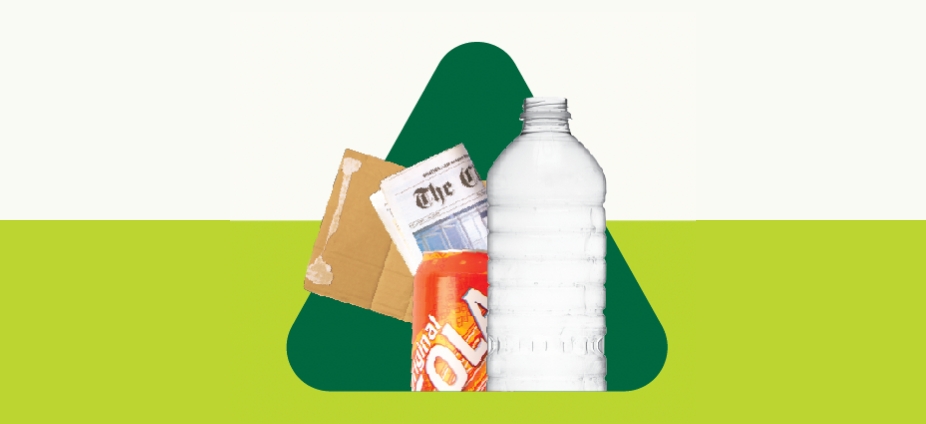
Do you know what can and can’t be recycled? In the United States, we recycle a lot of materials—glass, paper, plastic, etc. But when it comes to medical waste, there’s a lot of confusion. Can medical waste be recycled? The answer is complicated.
There are a lot of myths out there about medical waste and recycling. Let’s take a look at some of the most common ones and dispel them once and for all.
What Is Medical Waste Disposal?
So, what is medical waste disposal? In short, it’s any waste material that’s produced as a result of patient care or the research and development of medicines. This includes anything from needles and scalpels to bandages and swabs.
It’s important to note that medical waste can come in different forms. It can be solid, liquid or gas, and it can be infectious or non-infectious. Infectious medical waste is the most hazardous, as it can contain deadly pathogens like Ebola and MRSA.
Do Any Countries Currently Recycle Medical Waste?
The answer is yes—but the process is not as straightforward as you might think.
There are a few countries that have developed successful medical waste recycling programs, including Germany, Japan, and the United Kingdom. In Germany, for example, medical waste is incinerated to create heat and power for hospitals and other facilities. The heat created by the incineration process is then used to produce steam, which in turn generates electricity.
The United Kingdom takes a slightly different approach. There, medical waste disposal is burned in special incinerators to create heat, which is then used to generate electricity. The process is slightly more complicated than incineration alone, but it’s been shown to be more efficient and effective at destroying harmful pathogens.
As you can see, there are a number of ways to recycle medical waste—it just takes a little bit of creativity and innovation.
What Factors Affect the Ability to Recycle Medical Waste?
There are a number of factors that can affect the ability to recycle medical waste disposal.
For one, the type of waste can make a big difference. Some medical waste, like syringes and bandages, is easier to recycle than other types, like blood-soaked gauze. And some waste, like pharmaceuticals and sharps, can’t be recycled at all and must be disposed of safely.
The condition of medical waste is also important. If it’s wet, dirty, or covered in blood, it will be more difficult to recycle. That’s why it’s important to separate medical waste into clearly labeled containers and keep them clean and dry.
Finally, the location where the medical waste is collected can also affect its ability to be recycled. If there’s no facility nearby that can recycle medical waste, it will have to be transported to a facility that can handle it. This adds extra cost and time to the recycling process.
What Kinds of Medical Materials Are Recyclable?
It’s all well and good to say that medical waste disposal can, in fact, be recycled, but what does that actually mean? Well, let’s talk about the kinds of materials that can be successfully recycled.
First, things like needles and glassware are easy to recycle. All you need to do is put them in a plastic bag and send them off to a specialty waste hauler or recycling center that is licensed to handle and process medical waste.
Next up are materials like rubber gloves, absorbent pads, and packaging. These items can be recycled into things like plastic pallets and benches. However, they have to go through a rigorous cleaning process first.
Finally, pharmaceuticals can also be recyclable—but it varies depending on the medication. Some medications are turned into fuel, while others are broken down into their elemental materials and reused in the manufacturing of other products.
How Can Healthcare Facilities Reduce Their Medical Waste Accordingly?
One of the best ways healthcare facilities can reduce their medical waste is to move towards a culture of sustainable practices. This means changing how they handle and process waste and initiating a recycling program within their facility.
This includes implementing proper segregation of medical waste and ensuring that healthcare workers are properly trained on the steps needed to properly dispose of medical waste, especially for those that may require special attention.
It also means investing in technologies and systems designed to recycle medical waste, such as autoclave systems that turn biomedical waste into something reusable or recyclable. Additionally, buying supplies made from recycled materials can also help reduce medical waste as it reduces the need for new materials.
Common Misconceptions about Recycling Medical Waste
You may have heard some misconceptions about medical waste recycling—namely, that it can’t be recycled. This simply isn’t true! Medical waste is actually quite recyclable and can be turned into another useful material.
But before you rush to recycle your medical waste disposal, it’s important to bear in mind that not all medical waste is created equal. For example, not all medical waste is able to be recycled—syringes, for instance, need to go straight into the trash as they’re unable to be recycled. And certain types of plastic also can’t be recycled.
What you can do is make sure that your healthcare facility or office separates its non-hazardous waste items from hazardous ones and keeps track of what’s being recycled and disposed of appropriately. This will help ensure that whatever you’re recycling is truly recyclable and will end up in a place where it can be reused or repurposed.
Where Does Hospital Waste Go?
Life in a sanatorium is commonly a traumatic revel in for maximum people, that`s why it`s essential to lessen tension in sufferers and the workforce anyplace possible. One of the fine locations to begin is sanatorium waste management.
One of the most important troubles going through sanatorium waste demanding situations is the “Over-classification” of waste associated with “crimson bag” waste. The medical workforce might also additionally have skilled troubles inside the beyond with crimson bag waste in hospitals being stuffed incorrectly. And sanatorium site visitors might also additionally have been harassed as to what crimson bag waste is. The term “Over-classification” of waste refers to a massive problem happening in maximum clinical facilities. This is while everyday waste, together with pop cans, bottles, paper, meals waste, etc. emerge as being tossed inside the “crimson bag” packing containers through sufferers or the workforce which might be reserved to gather clinical waste only.
Why Hospital Waste Management Is Important?
Because Hospitals are such huge centers with intricated operations and worker systems, recycling applications most usually turn out to be uncoordinated and shortage support. Hospital waste is likewise taken into consideration as one of the maximum complicated waste streams of any enterprise and they produce an exceptional volume. The Good News? According to the World Health Organization, approximately 80% of health facility waste is a well-known waste! Paper is the biggest part of the waste moves at hospitals together with white paper, cardboard, etc. all of which can be high-cost recyclable materials.
Hospital waste control is essential as a way to defend personnel and sufferers from capacity damage or infections. Besides the plain threat that biomedical waste gives concerning the unfolding of diseases, clinical waste control is essential for health facility budgets as well. If you haven`t already applied for a health facility recycling program, now could be the time to start.
What Type Of Medical Waste Can Be Recycled?
It, in the long run, relies upon the waste hauler`s capacity to deal with all of the one-of-a-kind waste streams which are usually produced via way of means of a clinic. Hospital waste classes can include:
- Trash
- Recyclables
- Compostable
- Biohazards
- Hazardous
- Radioactive
Some of those substances are a great deal greater steeply-priced to cast off than others, that’s why crimson bag waste discount is a critical aim to be applied in a clinic recycling application. Here is a trendy listing of what scientific waste may be without difficulty recycled:
- IV Bags
- Broken Glassware
- Contaminated Glass
- Gloves
- Metallic Tools and Implants
- Plastic Trays
- Pitchers
- Basins
- Blue Wrap
There are some different plastic clinic waste gadgets that may be recycled as well, frequently used inside the affected person care areas. Typical recyclables along with cardboard and paper may be included. Due to the character in their use, `sharps` along with needles can’t be recycled. Old and expired medicinal drug is likewise now no longer recyclable and ought to be disposed of properly. Ask your pharmacist or medical doctor for greater details.
The advantages of a powerful clinic application are wide-ranging however from an economic factor of view, it manner value savings. And the ability to earn cash back. Successful recycling can lessen operational costs, boom employee safety, decorate network members of the family and start producing sales for the clinic.
Conclusion
There are a lot of myths surrounding medical waste disposal and its recycling process. However, the truth is that medical waste can be recycled and there are companies that are dedicated to doing just that.
If you are interested in recycling your medical waste, there are a few things you need to keep in mind. First, you need to make sure that the company you are working with is properly certified. Second, you need to make sure that the company has a good reputation.
Finally, you need to make sure that the company you are working with is properly insured. This is important because you want to make sure that your medical waste is properly disposed of. And that you are not liable for any damages that may occur during the recycling process.

